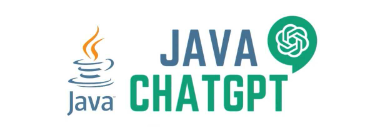How to pay zero tax in new tax regime: 2 deductions salaried taxpayers can claim to reduce taxable income to Rs.12 lakh There is no hike in the standard deduction limit in the Budget 2025
The new income tax slabs under the new tax regime are announced in the Budget 2025. As per the proposed income tax slabs, there will be nil tax on income up to Rs.4 lakh, 5% on incomes between Rs.4 lakh and Rs.8 lakh, 10% on incomes between Rs 8 lakh and Rs.12 lakh, 15% on incomes between Rs.12 lakh and Rs 16 lakh, 20% on incomes between Rs.16 lakh and Rs.20 lakh, 25% on incomes between Rs.20 lakh and Rs.24 lakh and 30% on incomes above Rs.24 lakh.Budget with ET
Union Budget 2025 Live Updates
Income Tax Budget 2025 Live Updates
Sensex Today | Stock Market LIVE Updates
Apart from changing income tax slabs in the new tax regime, tax rebate under Section 87A has been hiked to Rs.60,000 from Rs. 25,000 currently under the new tax regime. The new proposal will benefit taxpayers having taxable income of up to Rs.12 lakh from Rs.7 lakh taxable income currently.Also read | Has Standard Deduction of Rs 75,000 from salary, pension income increased in Budget 2025?
If you are a salaried individual, here are the two deductions you can claim to reduce your taxable income to Rs.12 lakh and pay zero tax as proposed in budget 2025.
Standard deduction of Rs.75,000 under new tax regime
The new tax regime allows a salaried individual to claim a standard deduction of Rs.75,000 from the salary income. This is a straight deduction available to salaried individuals without providing any document proof. The deduction is available on the premise that there is a salary income.Also read | Income Tax Slabs Budget 2025 Live Updates
There is no hike in the standard deduction limit in the Budget 2025. An individual will claim Rs.75,0000 as standard deduction in the upcoming fiscal year 2025-26.
Deduction on NPS contribution made by employer under Section 80CCD (2)
The new tax regime allows an individual to claim a deduction on NPS contributions made by an employer. This deduction is available under Section 80CCD (2) of the Income Tax Act. The current income tax rules allow an individual to claim a deduction of up to 14% of the salary as a deduction. Salary here means basic salary plus dearness allowance.Also read | New income tax slabs in Budget 2025: 30% tax now starts at Rs 24 lakh, 25% tax rate introduced for incomes between Rs 20-Rs 24 lakh
Here is an example to understand this. Suppose a private sector employee's basic salary is Rs.10 lakh per annum. His employer must contribute Rs.1,40,000 in a financial year to the employee's NPS account. This contribution will be deducted from the gross taxable income thereby reducing the net taxable income of the employee.
This deduction can help the salaried taxpayer to reduce taxable income to Rs.12 lakh and pay zero tax in the new tax regime from FY 2025-26.
However, salaried taxpayers should remember that if the total contribution made to NPS, EPF and superannuation fund by an employer exceeds Rs.7.5 lakh in a financial year, then the excess contribution will be taxable in the hands of an employee. Further, interest or any return earned on the excess contribution will be taxable as well.
This story originally appeared on: India Times - Author:Faqs of Insurances




























































